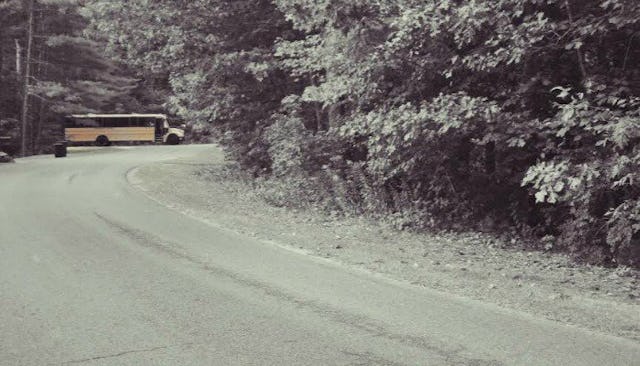The Ritual And Doubt Of Parenting

One of the unexpected joys of parenting has been the intimate soundtrack of a waking house—the scratchy click of the alarm and the pop music down the hall. The cats tearing up the stairs and leaping over toys and across beds, the rustle of sheets and first shuffle of feet to the bathroom, then a visit to my bed: “I’m awake, Mom.” It doesn’t matter what challenges crop up during the rest of the day, this soundtrack stays with me.
It was a Tuesday after a three-day weekend. The night before, the girls had taken baths, changed their sheets, and prepped their backpacks to make the next morning as seamless as possible. I smiled as the day unfolded.
Finley came to me, the hood of her long-wished-for footie pajamas over her head, turquoise ears flopping as she tilted her head into my chest and murmured, “G’mornin’ Mama.” I rubbed her back through the fleece and told her I loved her. The older girls were slower to approach, their preteen faces crouched between surly and sleepy; eventually they emerged, mostly friendly.
We made lunches relay-style before Briar curled up with a book and Avery with an iPad, while Finley filled her water bottle and untied her shoes. I marveled at her discipline, despite being the youngest and prone to playing the baby card, she does not dawdle when it comes to getting ready. She is the first to walk out the door, and questions of “Have you done this?” or “Did you remember that…?” are always met with a confident “Yes.”
This was the year that I fell in lockstep with the understanding that I cannot save them, that ferrying items left behind does not move my kids toward self-sufficiency. I can’t go so far as to say that I’ve enjoyed saying, “Hopefully next week you will remember,” but I’ve done it. They’ve forgotten less, so I’m going to call that progress.
Nicole Johnson
The emphasis on remembering things has sparked new conversations; now the girls tell me more about school, from discussions about not using drugs to how they practice lockdown drills. My middle daughter explained that they don’t have enough cubbies at school for everyone to have their own, “I actually have to share, but I get in first so it’s kind of good even though I get pushed and it’s hard to breathe. If there was a shooter, I wouldn’t be in front.”
I try to shield my emotions during these conversations because I don’t want to make the girls more scared than they might already be. I don’t want to dilute the training they’re getting, because I can’t be in the classroom, hallway or gym to have an impact on their actions anyway.
“Oh,” I said. “I’m glad you know the plan.” Finley then interjected, “Yes, in my classroom we have our spots to hide, and we know not to even breathe or sniffle, which would be hard, because when my nose runs or I get that cough, I need to do it, but I won’t. I promise.” I nodded and smiled. These conversations sober me and influence how I respond to requests to stay home.
There were 10 minutes left before we needed to leave, and Fin said, “I wish that I could play hooky.”
“Why?” I asked.
She shrugged, “I don’t know. I’d just like to.” Her blue eyes watched mine, scanning for an opening that would tell her I was teetering.
“Nope, it’s a school day on a short week. You have to go.” She scampered off to grab her coat.
It was fiercely cold as we sat waiting for the bus, and she said it again, “I still wish I could play hooky.”
I looked down the street for the bus. Like a flash, I remembered waiting for the bus the day I heard about Newtown. I looked back at Fin. This time I scanned her face, my heart racing, wondering if she had an instinct that was telling her school wouldn’t be safe.
I had no meetings to speak of, no pressing deadlines, and I’d already planned to be home early so that I could meet them at the bus stop after school rather than having them walk in the high winds. I wanted to scoop Fin up in my arms and hold her all day. But I was uncertain.
“Not today. We’ll miss school in April when we go to visit Grandma. Today, you go to school and see your friends and learn some new things, and then tonight we’ll cuddle and you can tell me about your day. I can drive you to school if you want.”
She grinned. “No, I like the bus.”
“I like you,” I said.
She giggled and then launched herself across the icy ground toward the approaching bus. My heart caught. I didn’t call out “I love you”; Fin draws a thick line between her mother’s affection and her classmates’ eyes. I waited in the driver’s seat, tears threatening, and watched as she walked back to her row and used her sleeve to clear the condensation off the window.
She caught my eye and mouthed, “I love you.” My shaky voice filled the car as I said it back. Sitting by myself as the tail lights faded away, I drew a deep breath, replaying the sounds of our morning and her requests to stay home and wondered if I was making the right decision.
This article was originally published on